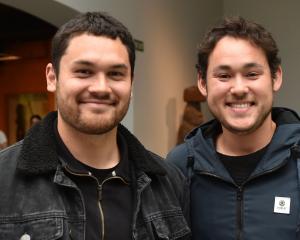
On Saturday, about 70 people took part in a protest led by the New Zealand Anti-Vivisection Society against the university's planned use of the lab in Great King St.
Among the protesters was prominent Australian animal rights activist James Aspey.
Mr Aspey claimed ``animal testing causes unnecessary pain and suffering in animals, and produces false results, which ultimately harms humans''.
However, university deputy vice-chancellor Prof Richard Blaikie has taken umbrage with this claim and believes the term `false results' is ``extremely misleading''.
``Research using animal models has played a vital part in nearly every medical breakthrough over the past few decades and has saved hundreds of millions of lives worldwide,'' he said.
``It helped develop painkillers, anaesthetics, asthma inhalers and insulin, and is responsible for rising numbers of people surviving cancer.''
The university is permitted to use animals in research or teaching under the Animal Welfare Act if the purpose is to enhance human or animal health, or the management of the environment.
Before live animals were used in teaching it had to be approved by an animal ethics committee.
The facility is expected to be completed in February next year.
Comments
If Mr Blaikie had even a nodding acquaintance with work on animal experimentation, he'd know that there's a very large, and growing, literature showing that animal models are not only poor predictors of human responses but often also harmful due to misleading claims about safety that they make.
I agree! See the response from NZAVS here http://www.scoop.co.nz/stories/PO1705/S00419/physics-professors-animal-t...












